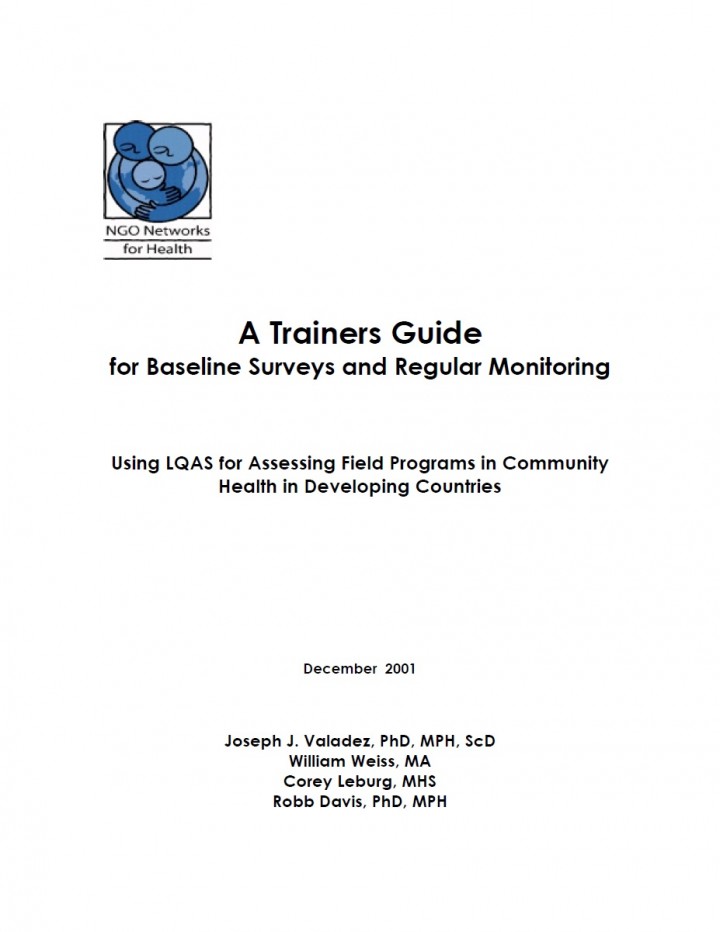A Trainers Guide for Baseline Surveys and Regular Monitoring Using LQAS for Assessing Field Programs in Community Health in Developing Countries Valadez, J., Weiss, W., Leburg, C., Davis, R. (2001)
This manual is for community health program managers, field supervisors, and others who need to monitor and evaluate their programs. Most often people who have such a responsibility, also have to collect data as one
of their tasks. The manual will aid them to train others in a simple and rapid method for collecting data to use for monitoring and evaluation of community health programs. It is called Lot Quality Assurance Sampling. LQAS has been used for about 75 years for industrial quality control purposes. But it has been adapted for community health practitioners to use over the past 15 years. Now it is used all over the world to assess coverage in communities with programs in maternal and child health, family planning, and HIV/AIDS; to assess the quality of health worker performance, and even to assess disease prevalence. This manual presents LQAS in a very user friendly way so that they can train almost any supervisor or community health worker how to use the method for the first type of application – which is the most often used application. This manual is written from the point of view of NGOs as the users. However, all of the materials can be easily adapted for any other user. We encourage Ministry of Health staff, UN Agencies and any others to use this manual. Where ever you read NGO or NGO catchment area, think of a large area that corresponds to your administrative unit. For example, an NGO catchment area could be a district or sub-district area. The manual consists of two sections: (1) a manual for trainers—for anyone, that is, who wants or needs to train other people in the LQAS methodology; and (2) a participant’s manual, which is a collection of all the overheads/handouts used in the training program. With the Participants Manual health workers and other trainees can follow the trainer during each session, and review later on what was presented. The manual consists of five Modules, each with one or more separate Sessions, with each Module answering a key question about data collection. These questions are:
MODULE ONE: Why should I do a survey and why should I use the LQAS method?
MODULE TWO: Where should I conduct my survey?
MODULE THREE: Whom should I interview?
MODULE FOUR: What questions do I ask and how should I ask them?
MODULE FIVE: What do I do with the information I have collected?
Bibliographic information
Valadez, J., Weiss, W., Leburg, C., Davis, R. (2001). A Trainers Guide for Baseline Surveys and Regular Monitoring Using LQAS for Assessing Field Programs in Community Health in Developing Countries NGO Networks for Health
Filter / Tags
Guidelines and manualsEnglishTrainer manuals (adult learning)
Downloads
A Trainers Guide for Baseline Surveys and Regular Monitoring
Type: application/pdf
Size: 0.73 MB

